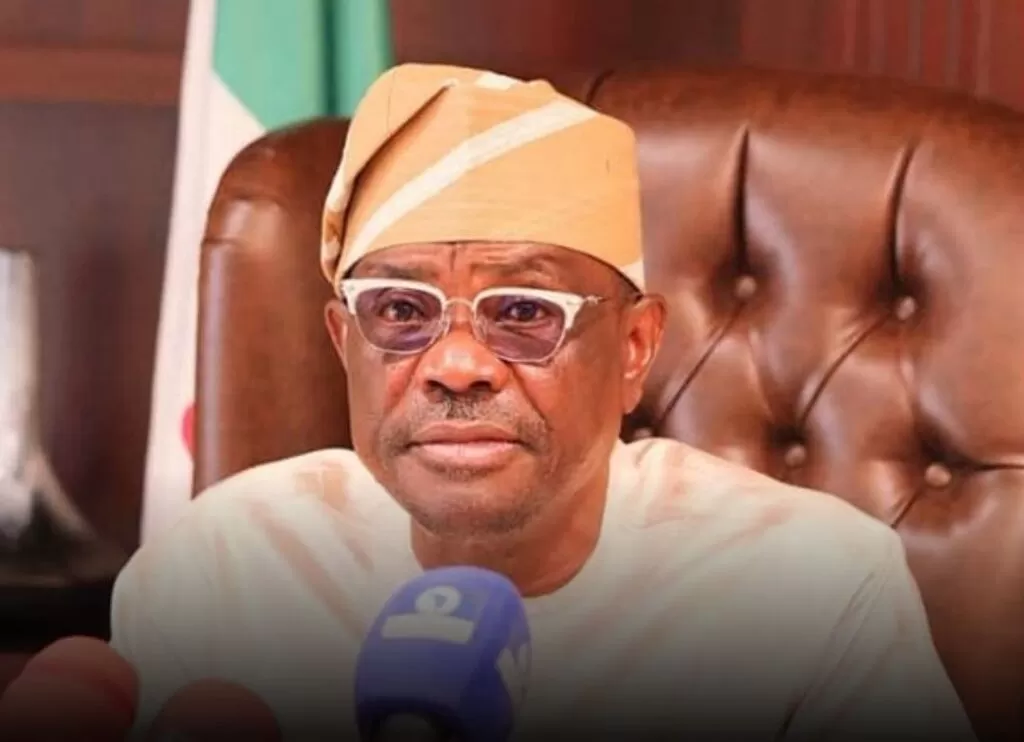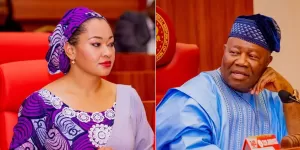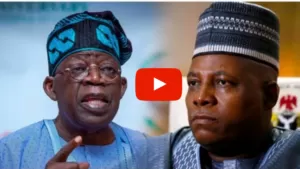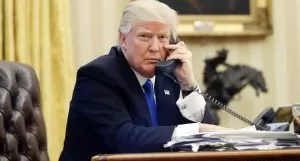President Tinubu Presents ₦1.78 Trillion FCT Budget to National Assembly

President Bola Ahmed Tinubu formally presented a ₦1.78 trillion budget proposal for the Federal Capital Territory (FCT) to the National Assembly. The submission, detailed in a letter read on the floor of the House of Representatives by Speaker Tajudeen Abbas, underscores the administration’s commitment to advancing infrastructure and development projects in Nigeria’s capital.
In his letter, President Tinubu urged lawmakers to fast-track the passage of the budget to ensure timely implementation of critical projects aimed at transforming the FCT. The proposed budget is designed to address both ongoing and new initiatives, with a clear focus on enhancing the capital’s infrastructure and overall development.
Budget Breakdown
President Tinubu provided a breakdown of the budget estimates, highlighting the allocation priorities:
- 85% (₦1.513 trillion) will be directed toward the completion of ongoing infrastructure and development projects. These include road networks, water supply systems, electricity, and other essential services critical to the functionality and growth of the FCT.
- 15% (₦267 billion) will fund new initiatives, which are expected to address emerging needs and further enhance the capital’s status as a modern administrative and economic hub.
The emphasis on completing existing projects reflects the administration’s intent to avoid abandoned initiatives while ensuring that new projects align with long-term development goals for the FCT.
Call for Swift Legislative Action
President Tinubu’s appeal for a speedy passage of the budget underscores the urgency of addressing developmental challenges in the FCT. Abuja, as Nigeria’s political and administrative capital, requires sustained investment to meet the demands of its growing population and to maintain its role as a symbol of national unity and progress.
The Speaker, Tajudeen Abbas, assured that the House would prioritize the budget’s review, with committees expected to commence deliberations promptly. The Senate is also anticipated to receive a similar letter from the President, ensuring both chambers of the National Assembly work in tandem to expedite the process.
Context and Expectations
The ₦1.78 trillion FCT budget comes at a time when Nigeria is grappling with economic challenges, including inflation and currency fluctuations. The Tinubu administration has repeatedly emphasized infrastructure development as a cornerstone of its economic agenda, with the FCT serving as a focal point for showcasing progress.
Stakeholders in the FCT, including residents and business owners, are hopeful that the budget will address longstanding issues such as inadequate road networks, unreliable power supply, and insufficient public services. The allocation for new initiatives has also sparked interest, with expectations that these projects will include innovative solutions to urban planning and environmental sustainability.
Next Steps
Following the presentation, the budget will undergo scrutiny by relevant committees in both the House of Representatives and the Senate. Public hearings may be conducted to incorporate input from stakeholders before the final passage. Once approved, the budget will guide the FCT Administration’s activities for the fiscal year, with a focus on delivering tangible improvements to the capital.
President Tinubu’s proactive engagement with the National Assembly signals a collaborative approach to governance, with the FCT budget serving as a critical component of his administration’s broader vision for Nigeria’s development.
As the legislative process unfolds, all eyes will be on the National Assembly to deliver on the President’s call for swift action, ensuring that the ₦1.78 trillion budget translates into meaningful progress for the Federal Capital Territory.






